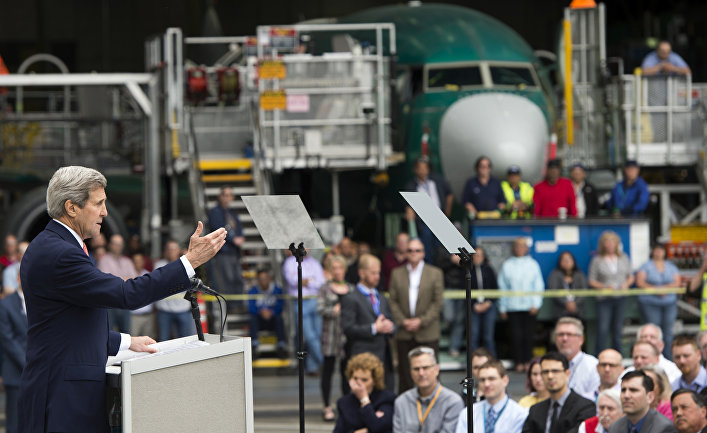Although decisions taken in Washington over the last year have had increasingly explicit results for Russian corporations, following the decision-making on Capitol Hill hasn't yet become a habit among Russian business-people. Which is a mistake.
While eyes were glued to Russia's TV-screens on the gay marriage legalization debate, the US Senate on 24 June was passing a motion that would make most viewers' eyes glaze over – the “Approval of Powers of the Trade Promotion Authority” (TPA). This bill, signed-off by Barack Obama on 29 June, enables the US President to make foreign trade deals in the next six years — without Congress seeing any of their details whatsoever. Pushing the TPA through was the White House's trump card in its battle for Barack Obama to conclude his second presidential term by signing the Trans-Pacific Partnership (TPP). The TPP is the free trade agreement by which Washington hopes to become the game-setter in Asia-Pacific Region (APR) trade.
Nobel laureate in economics @JosephEStiglitz "The #TPP 'Free Trade' Charade: #TPP is not about #FreeTrade" http://t.co/v5FtfK0cUh #StopTPP
— TPPMediaMarch (@TPPMediaMarch) October 7, 2015
Negotiations for the TPP are the most far-ranging economic processes in the region. They cover twelve countries whose joint share of global GDP tops 35% — including the US itself, Japan, Canada, Mexico, Australia, South Korea, and Vietnam. The TPP will set the rules of the game in many areas – including technical regulation, environment, employment law, and intellectual property rights. The partnership comes as a response to both the Doha Round of log-jammed WTO negotiations, and the burgeoning level of China's influence. The exclusive business group will set the standards to which others will be forced to play catch-up – and this is the reason why China is actively promoting its own quite separate TPP. However, with this Congress resolution in the bag, the USA will achieve its block earlier — and head the others off at the pass.
Wall Street and big corporations just won a big victory. Now it's on us to stop the #TPP from becoming law. #StopTPP https://t.co/TomgDWu5CA
— Bernie Sanders (@BernieSanders) October 5, 2015
What does this all mean for Russia? Very little for producers of raw materials – but a great deal for many corporations with ideas of selling added-value products – machinery, software, agricultural products – on the Asia-Pacific market. Some will merely shoulder the costs of adopting new certification – but others face the transition to new technical standards, quite apart from intensified competition from other TTP members. Meanwhile Russia, in contrast with China, is still taking little effort even to clarify the situation. “Creating a trading bloc in Asia without China is impossible. So checking the details is just a waste of time” say industry-sector officials. Business is similarly taking little heed of the situation – for example, at the APEC Business Advisory Council meeting, where it should have been possible to glean extensive details. The end result is that Russian players face an exceptionally high chance of having to make on-the-fly alterations to suit new game rules – while the number of people who will be able to prepare for TTP with the facts and figures available can be counted on the fingers of one hand.






